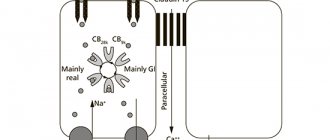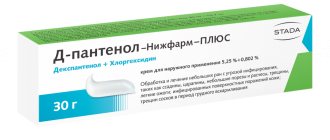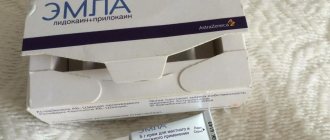Corega is a great helper for those people who use dentures. Of course, the reliability of fixation depends on the quality of the material used and the professionalism of the doctor. If there is a slight gap between the structure and the gum, the fixation will be maximum. But the fear that the denture may fly out when a person sneezes, eats or sings leads to the use of additional means for fixation, one of which is Corega for dentures. It is available in two forms: cream and tablets. One product is used to fix the product, and the second is used to clean it.
For which dentures can Corega cream be used?
This product was developed by a German company. Its specialists have done a lot of work to obtain a unique means for reliable fixation of removable structures.
Corega denture cream is ideal for fixing nylon dentures. The material used exactly replicates the appearance of natural teeth, as well as the shape and structure of the gums. But their fixation method does not guarantee the required functionality. The design of these prostheses is equipped with strips or suction cups, onto which the cream is applied. Orthopedic prostheses made of plastic can also be fixed using Corega cream. They do not have auxiliary elements for fastening, and the fixing agent is applied directly to the material itself.
Rules of application
Corega cream for fixing dentures allows you to obtain maximum adhesion only if you follow the following instructions:
- Apply the product only to a previously clean and dry structure. For cleaning, you can use Corega tablets.
- The cream is distributed pointwise using a dispenser into the recess of the structure, 1 time per day.
- Before installing the denture, rinse your mouth with water.
- Press your jaws tightly for a couple of seconds after the product has been inserted into the oral cavity.
- Remove any remaining product using a cloth previously treated with oil.
- After use, close the tube of cream tightly.
- Do not wash or handle the tube lid with wet hands.
- Store this product unopened, and when the expiration date expires, the product is no longer suitable for use.
Analogues of the drug
The drug Corega has substitutes. Analogues include the following products for cleaning dentures:
- Rox. The product is produced in tablet form. With constant use, the amount of plaque is reduced, food debris and traces of staining are removed. The advantage is that the medication does not contain phosphates and chlorine. The development of an unpleasant odor is prevented, and the denture looks like new.
- Dentipur. These are tablets that are used to clean dental structures. The drug cleans and disinfects removable dentures. The composition of the product does not destroy the material of the structure, quickly cleans it of mucus, plaque and food debris.
- Fittydent. Tablets that are used to clean complete and partial dentures and removable orthopedic products. The package contains 32 pieces. The product is used twice a day. The tablet is dissolved in warm filtered water and the denture is left for 30 minutes. After the procedure it is washed. This drug prevents the development of inflammatory and painful processes.
- MyoClean. A medicine that can be purchased in the form of effervescent tablets. They are used to clean dentures. The product contains active oxygen and disinfecting elements that provide hygienic care. The medication is able to give artificial teeth a fresh smell, protect them from bacteria, and remove plaque from them.
- Protefix. The products include several pharmaceutical products that are produced for the care and fixation of removable dentures. The tablets contain active oxygen, which helps clean removable dental structures. The active substance is able to penetrate into the most inaccessible places. The tablets are effective against the development of pathogenic microorganisms and the formation of tartar. The result can be observed within 10 hours.
Protefix
Replacing the product used on your own is not recommended. Specialist consultation is required. This is due to the fact that each product has its own characteristics of use and may have individual intolerance.
Types of coreg creams for dentures
The manufacturer took into account all the wishes of its customers, so it produced 3 types of cream: neutral, extra strong and refreshing. Each of them has a direct effect on the denture, contributing to high-quality and reliable adhesion for a long time.
Neutral taste
The neutral cream contains no special additives, so it does not change the taste of food. A characteristic advantage of this product is that zinc was not used in its manufacture, which is required for high-quality fixation. This component is replaced by gum arabic. This is a special resin of natural origin.
Extra strong coreg gel for dentures
But when developing an extra strong cream, the following composition was used:
- methyl vanyl ether maleic acid salt;
- gum;
- petrolatum;
- silicon;
- paraffin (liquid);
- menthol;
- flavorings;
- menthyl lactate;
- dyes.
The cream also contains gum arabic, which ensures maximum adhesion of the structure to the gums. The active ingredients in this product are used in double concentration. Thanks to them, it is possible to securely and permanently secure the denture, without harm to health and without affecting well-being. When wearing such a prosthesis, a person does not feel discomfort.
The mineral oils present in the product give the corega cream a pleasant elasticity. Thus, it is distributed evenly over the surface and fills all the gaps. The presence of dyes is explained so that the cream takes on a pale pink color, imitating the shade of gums. If you apply the fixing agent carelessly, it may be noticeable to others.
Refreshing taste
The presented product is intended for sensitive people. It is characterized by the fact that it does not contain zinc, which makes it completely safe to use. This is important for those who take dietary supplements containing this substance every day. If zinc was also included in the fixing agent, then after some time its concentration in the body would increase, which would lead to a deterioration in overall health.
In addition, every day people consume food and products through which the body is saturated with these elements. When its amount is increased, the patient develops unpleasant neurological symptoms such as trembling and numbness.
Taking into account the wishes of customers, Corega manufacturers began to produce the cream in two variations: with zinc and without zinc for those who take nutritional and mineral supplements.
If you apply the cream correctly and follow the instructions for use, then zinc will not enter the body, much less accumulate in it. The cream is made in such a way that the substances present in the composition do not enter the lymph. Harmful components will only enter if the fixative is swallowed by a person.
Taking into account which cream has been chosen, during development, ingredients may be added to its composition to give the product taste and smell. As a rule, these are mint and menthol components. The functional properties of the product do not depend on them, but at the same time they change its taste and can be chosen only according to personal desire.
Corega or Protefix which is better: reviews
Protefix Cream (Protefix®) - produced by a German company, which also produces popular dietary supplements under the DoppelHertz® brand.
Protefix has a composition very similar to Corega, which already allows us to make an assumption as to whether Protefix or Corega is better. Cream Protefix: photo of 2 variants of release forms
- Protefix cream: composition... contains calcium or sodium salt of maleic acid copolymer and carboxymethylcellulose. Excipients: paraffin, petroleum jelly, silicon dioxide, menthol, azorubine, methyl 4-hydroxybenzoate.
- Protefix cream: price for 2022 There are several forms of the drug, which differ from each other only in the presence or absence of taste and smell (menthol). The cost of any of these forms is about 220 rubles (per 40 ml tube). There are also tubes of 20 ml - their cost is about 140 rubles. And as we see: both Protefix and Coreg adhesive for dentures have almost the same price...
- Corega or Protefix, which is better: reviews The manufacturer says that even the strongest version of Protefix®extra cream is strong - it only lasts “at least 12 hours.” While Corega allows you to fix the prosthesis for the whole day. An analysis of a large volume of reviews in online stores Amazon and Ebay showed that the rating of Protefix® cream was approximately 20-25% worse than that of Corega® cream, and patients were dissatisfied with this cream a little more often.
FITTIDENT cream for fixing dentures: price, reviews
This is another cream for fixing dentures, which is significantly different in composition from the previous two.
It consists of 2 main components: firstly, it is polyvinyl acetate (this is nothing more than PVA glue), and secondly, it is still carboxymethylcellulose, which is necessary for absorbing saliva, because PVA glue only works on a dry surface. From here we can immediately talk about the disadvantages of this product. Excess saliva (and you should understand that there are small salivary glands under the prosthesis) leads to neutralization of the effect of the glue. The second disadvantage is that on the inside of the prosthesis there will be a lot of tightly attached glue residues, which are quite difficult to remove without special Fitident cleaning tablets. It is also undesirable for motorists to use it (due to its low alcohol content).
Fittident cream for fixing dentures - the price for 2022 will be from 180 to 220 rubles (40 ml tube), which is not much cheaper than Coreg.
Contraindications for taking the cream
Corega is an absolutely safe and non-toxic cream-gel used to fix dentures. It must be used strictly for its intended purpose. If the patient swallows a small amount of the product while wearing a denture, this will not adversely affect his health.
The only contraindication to use will be individual intolerance to a certain substance included in the composition of the product. First of all, this concerns those people who belong to the category of allergy sufferers. If, after using a fixative, a person experiences a feeling of nausea, excessive salivation, or a change in taste sensations, then it is necessary to immediately remove the denture and rinse the mouth to remove excess product.
If all the described symptoms occur to a person, then there is no need to delay, go to the hospital immediately. Perhaps a person does not even suspect that he has an intolerance to a certain component.
Instructions for use
Tablets are used to prepare a solution. One tablet is required for one glass of warm water. A thoroughly cleaned prosthesis is placed in the prepared solution for 15-20 minutes for sterilization. If there is a need, then it is left overnight. After removal from the solution, it is washed in filter water and dried well.
If a person is incompatible with the components of the drug, then adverse reactions may occur. These include the following symptoms:
- the appearance of allergies;
- increased salivation;
- vomit;
- change in taste sensations;
- feeling of burning and irritation.
If you use the tablets as recommended, they should not cause side effects. If the remaining solution is not thoroughly washed off, this can lead to a feeling of irritation and burning at the site where the structure adheres to the gum. The sense of taste may also change, hyperemia and itching may appear.
Coreg tablets for dentures
In addition to the cream, this manufacturer produces Corega in the form of a tablet for dentures. Their composition contains a number of active components that have a powerful cleansing, disinfection of dentures and a deodorizing effect. If you actively care for and use Corega tablets for dentures, you can extend the wear life of the dentures. The tablets are based on a unique formula, thanks to which you can remove food debris in places that cannot be cleaned mechanically using a traditional toothbrush.
With the constant use of tablets, complex contaminants can be removed from the surface of the product. These include plaque from tobacco and coffee. Corega in tablet form has a powerful antiseptic and disinfectant effect. If they are placed in a solution for 8 hours, this will be an excellent method of sterilizing the prosthesis.
The constant use of tablets to clean the dental structure can extend the life of the denture and maintain its original shade. It remains important that the presented product will reduce the inflammatory process and irritation of the gums and oral mucosa, which very often occur when wearing dentures.
Rules of application
Before using Corega tablets to clean dentures, you must thoroughly clean the dental structure from food debris. To do this, you should use a toothbrush. Immerse the prosthesis in the freshly obtained solution of the drug. To obtain it you need to take 250 ml of water and one tablet of the drug. For cleaning, the denture should be in the solution for 10-15 minutes. If you need to disinfect it, leave it overnight.
After the specified time, remove the product and rinse thoroughly under water for several minutes. Dry with a paper towel. It is not allowed to use the drug for treating dentures in the oral cavity.
Sources used:
- Website (Mironova M.L.)
- Errors in orthopedic dentistry. Professional and medical-legal aspects / V.N. Kopeikin, M.Z. Mirgazizov, A.Yu. Small. — M.: Medicine
Composition of the drug
The product is available in the form of effervescent tablets in a cell package of six pieces for preparing a solution. The cream is used for extra-strong fixation of dentures. It is packaged in 40 ml tubes.
The medication is in a cardboard package along with instructions for use. The composition of the tablets is represented by the following components:
- blue dye;
- polymethylsiloxane;
- peppermint essential oil;
- polyethylene glycol;
- enzymes of the proteolytic group;
- potassium monopersulfate;
- sodium carbonate;
- tetracetylethylenediamine;
- sodium lauryl sulfoacetate;
- lemon acid;
- sodium perborate;
- sodium bicarbonate and benzoate.
Using Corega tablets twice a day allows you to remove stains from dentures that arise from eating or smoking. They have a disinfectant and antibacterial effect on the oral cavity, helping to prevent plaque and gum inflammation.




